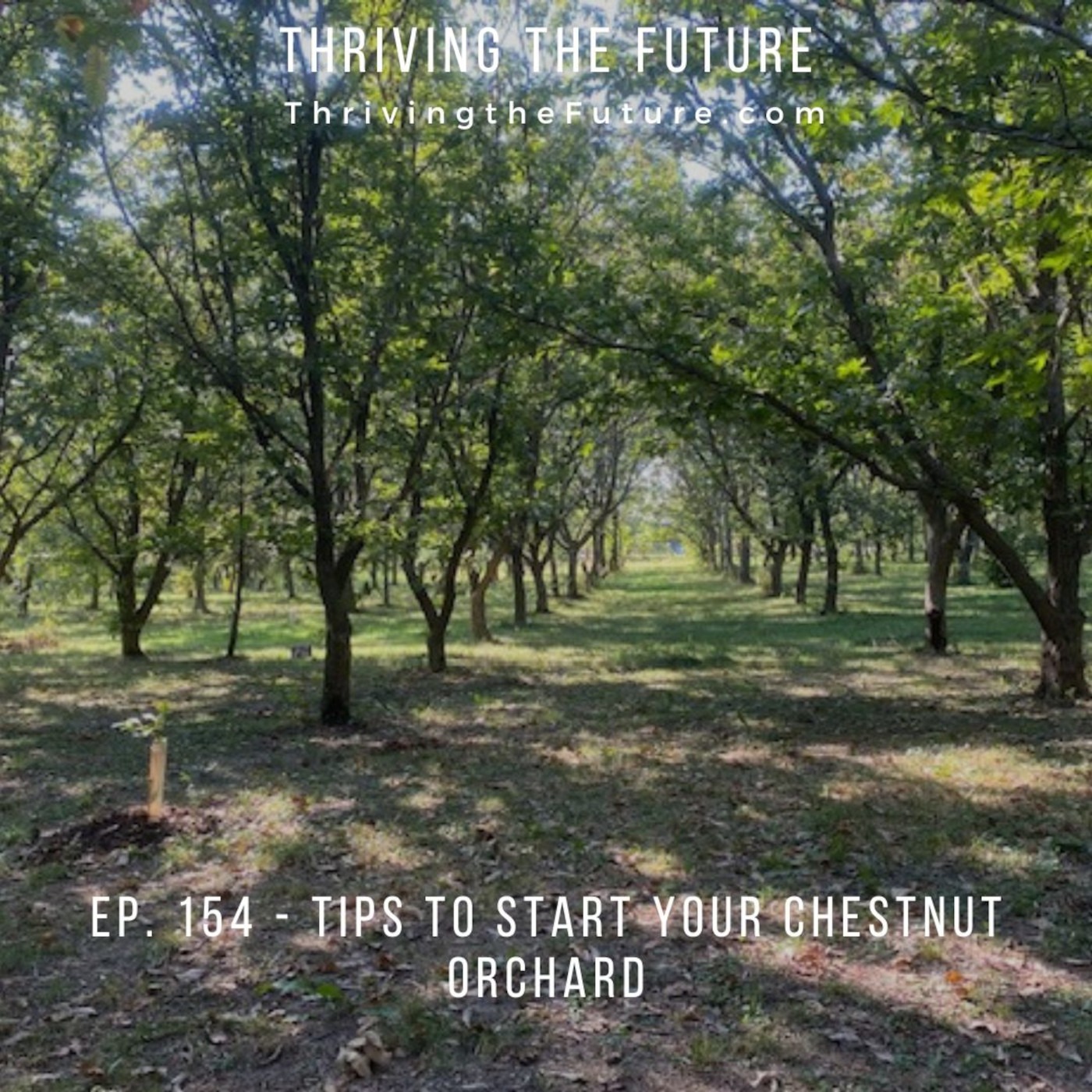

In this episode I cover an overview of the different types of chestnuts. And why do customers prefer hybrids over Chinese chestnuts? I share what named varieties that I am growing this year. And I give you tips to start your chestnut orchard, including soil pH and how/when to fertilize your chestnut trees.
I forage buckets of chestnuts from local chestnut trees every Fall and store them in buckets of sand to sprout over the Winter. But in Spring 2024 my stored chestnuts were moldy and rotten - they had failed over the winter.
I learned a lot more as I have diversified my chestnut offerings in response to this loss, as well as expanded my knowledge through my in real life contacts. In this article I will share what I have learned so it will help you as well.
Varieties of chestnuts:
American, Chinese, Japanese, European.
Why are customers turned off by Chinese chestnuts? Why do they sell for less than hybrids?
Dunstan chestnuts and other hybrids.
Named varieties of chestnuts:
A named variety, or a known-parent, is a tree or seedling that is chosen for it's heavy production and larger nut sizes. That known (named) parent mother tree is open pollinated by the surrounding trees. It's nuts are saved and grown into seedlings. This is a common way to grow and sell chestnuts, much more than grafting.
Some sites call these named varieties of Chinese chestnuts Half sibs.
Qing, Gideon, Amy, Peach, and Resilient are examples of named varieties (known parent/Half sibs) of Chinese Chestnuts.
I am growing Qing, Resilient named varieties, and some Japanese hybrids this year.
I am sprouting from seed:
- Eaton, which is a Chinese, American, and Japanese hybrid.
- Gideon seed. This will produce large to extra-large nuts that are high in quality and flavor.
- Hope is a Chinese, American hybrid that is a sibling of "King Arthur", a cultivar from the Connecticut Ag Experiment Station's chestnut breeding program.
- Revival: a HUGE hybrid with chestnuts as big as my palm.
Tips to grow chestnuts:
- Chestnuts need moderately acidic soil, somewhere between 4.5 and 6.5 pH.
- Chestnuts need trace minerals like Boron, I have seen suggested that 1 tsp of borax, dissolved in water, poured on an 8x4 garden bed can help with this. I will experiment with adding boron this year.
- Do not put fertilizer in the hole when planting chestnut trees. You want the chestnut to grow out into the soil seeking nutrients. If you do fertilize, add some 10-10-10 fertilizer lightly to the top of the soil. Do not use long time released fertilizer.
- Foliar feed in the summer. This makes root growth and enhances the soil.
Show notes for this episode: Ep. 154 - Tips to Start Your Chestnut Orchard
Grow Nut Trees is now taking orders for Spring shipping or local pickup.
NEW for this year are more types of chestnuts, including Qing Chinese hybrid chestnut seedlings. The Qing tree is a heavy producer with sweet flavored extra large nuts. These seedlings were grown locally and are adapted to the Midwest.
Grow Fodder Trees! New this year are cuttings for fodder trees - mulberry and hybrid willow. These are fast growing and the leaves are edible as forage for animals (my horses love them - maybe a little too much). Plus the mulberries can feed chickens if planted near a chicken run. And they are good for chop and drop. Get your mulberry and willow cuttings from Grow Nut Trees.